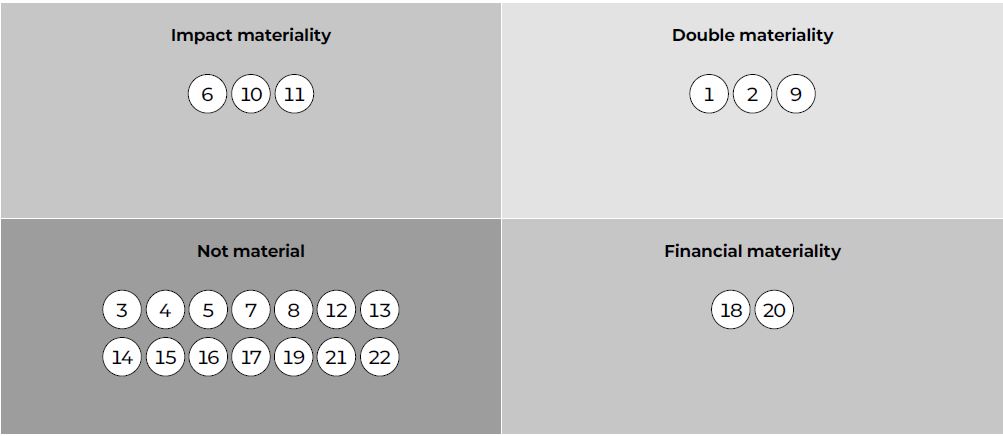Delivering on our strategy, achieving our objectives and creating long-term value for our shareholders requires robust, transparent corporate governance. Good governance requires us to protect the business and our stakeholders by doing what is right.
Capricorn is committed to delivering value in a safe, secure, environmentally and socially responsible manner for our stakeholders. Delivering our strategy, achieving our objectives and creating long-term value for our shareholders requires robust, transparent corporate governance. Good governance, combined with our responsible culture, helps to ensure that the Company continually works to benefit our stakeholders.
READ MORE ABOUT OUR GOVERNANCE FOCUS IN OUR ANNUAL REPORT
Material Topic
- Anti-corruption
Highlights
- Sustainability Committee met twice in 2024 to discuss ESG issues.
- Anti-bribery and corruption and tax evasion compliance training programme completed across the Group.
- Worked with our partners to deliver anti-bribery and corruption training to higher risk roles.
- Risk assessments for bribery and corruption and tax evasion updated.
- Business and operational management systems refreshed to ensure they were suitable for the Group.
- Frequent risk review meetings completed with all departments to review and discuss ESG risks and opportunities.
Priorities
- Continued commitment to ethical operations and ESG matters.
- Implementation of controls to ensure Economic Crime and Corporate Transparency Act 2023 compliance.
During 2023 and 2024, Capricorn transitioned from a larger operating company managing multiple assets to a more streamlined organisation with a non-operated stake in onshore Egyptian assets. As a result of reducing our operations and size, the Company chose to undertake a double materiality assessment (DMA) in 2024 to reassess our material topics in light of these changes to the Company’s scope of operations. This has enabled us to refocus our ESG and sustainability efforts to be more representative of Capricorn today.
read more about Identifying Material issues in our ANNUAL report
Materiality Matrix
 The outcome of Capricorn’s DMA is represented in the materiality matrix below:
The outcome of Capricorn’s DMA is represented in the materiality matrix below:


Material Topics
| 1) GHG emissions | 9) Occupational health and safety | 17) Rights of indigenous peoples |
| 2) Climate adaptation, resilience and transition | 10) Employment practices | 18) Conflict and security |
| 3) Air emissions | 11) Non-discrimination and equal opportunity | 19) Anti-competitive behaviour |
| 4) Biodiversity | 12) Forced labour and modern slavery | 20) Anti-corruption |
| 5) Waste | 13) Freedom of association and collective bargaining |
21) Payments to governments |
| 6) Water and effluents | 14) Economic impacts | 22) Public policy |
| 7) Closure and rehabilitation | 15) Local communities | |
| 8) Asset integrity and critical incident management |
16) Land and resource rights |
